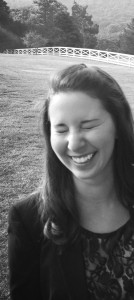Musings from Students of the Pardes Institute of Jewish Studies in Jerusalem
Posted on December 25, 2014 by Suzanne Hutt
“ 5…4…3…2…1…Do you believe in miracles??!”
5…4…3…2…1…Do you believe in miracles??!”
That’s one of the most blood-pumping, invigorating moments in one of my very favorite movies, Miracle, about the 1980 U.S. Olympic hockey team. The miracle in the movie is that the inexperienced, comparatively young U.S. team could beat the seemingly invincible Soviet team.
When we talk about miracles, we often talk about grand, in-the-spotlight events, experiences that defy our expectations and remind us that we can’t always predict the future.
The traditional Chanukah story is no different from that definition. The story goes that the Maccabees defeated the mighty Greeks, a miracle in itself, and then went to the Temple in search of oil. All the oil had been tainted, but they found a vile with enough oil to last one night. The miracle of Chanukah was that the oil lasted for eight whole nights.
At Pardes, our teachers are really successful at addressing our preconceptions and cracking them wide open, so our Chanukah preparations were of course very enlightening (pun intended). My Halakha teacher, Rav Mike Feuer, talked with us at length about rethinking the “miracle of Chanukah.”
First, he addressed the obvious elephant in the room: Did this really happen? We’ll never know if this really happened, he said. Maybe the oil lasted for eight days, maybe it didn’t. What we do know, however, is the story they told about it. Here we are, over 2000 years later, and after taking a poll of the class, we discovered that each and every one of us had heard of the miracle of Chanukah. So the first and foremost miracle of Chanukah isn’t about the oil, it’s about the story. The stories we tell have the power to last thousands of years, and the longevity of the story of Chanukah is the miracle in itself. It’s nowhere in the Tanakh, having come later in history, so Chanukah as a holiday doesn’t have the same literary backing as others. Why then, after generations of persecution and assimilation, are we as a Jewish people still here, telling the story? That is a real miracle.
But let’s dare to imagine that the story is true, because it very well may be. That’s where the second miracle of Chanukah comes in. Mike began to paint a picture for us of what it must of looked like, the Temple in a state of total destruction, when the Maccabees first entered it. What must that have felt like, the despair at seeing something so treasured and holy having been so horribly vandalized? In such a state, what made the people believe, Mike asked, that there could be any pure oil left among the ruin? The miracle isn’t that they found the untainted oil. The miracle is that they had the faith to look for it in the first place.
The way I understand it, miracles are all around us. They are in the small moments, not just the grand gestures. Opportunities abound to recognize the funny or awe-inspiring or humbling ways in which life defies our expectations. As we say goodbye to Chanukah 2014, my hope is that we can all experience the coming year with our eyes and our hearts wide open, with the faith to seek out the light in even the darkest moments.